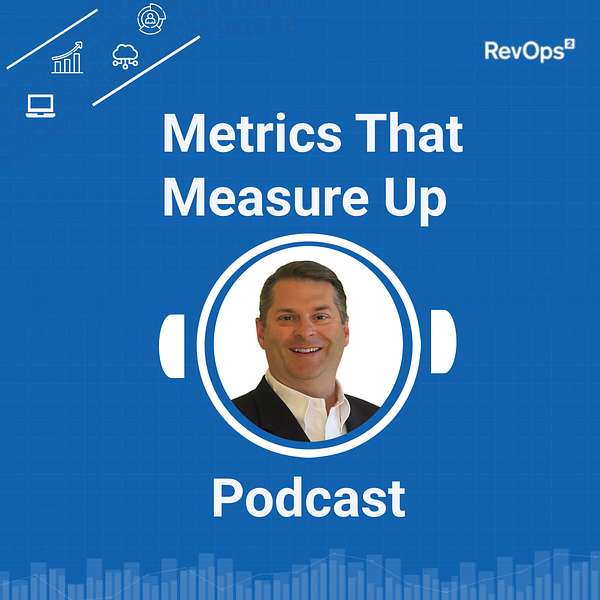
Metrics that Measure Up
Metrics that Measure Up
RevOps as a Strategic Revenue Planning Partner - with Toni Hohlbein, Growblocks
As a Chief Revenue Officer, Toni has had a front-row view on scaling revenue engines, and one major challenge he faced was that too much time was spent on financial planning and budgets, versus how to best make money.
The first question we discussed was the difference between FP&A and Revenue Operations. Toni's perspective is that Revenue Operations is much closer to the revenue generating process, and thus has a deeper insight into how revenue is generated, and as such should be a key part of the revenue planning process.
Next, we discussed how being involved in the revenue planning process makes RevOps a more strategic partner to the executive team. RevOps top three responsibilities are data, process, and tools but only the start. The trick is to take the insights from the aforementioned three responsibilities and becoming the primary purveyor of insights into how the revenue engine is performing on an end-to-end basis.
Potential strategic activities starts with revenue planning, which starts with how to generate revenue efficiently. Next, RevOps should be the "mission control" through regular meetings with the commercial (revenue) leaders, and discuss the insights from the dashboards and reports they are providing. Key to the value of these discussions is how to overcome the issues that the data is surfacing.
One of the opportunities in today's business culture is becoming data-driven without becoming data overwhelmed. Revenue Operations should take the lead on determining how the data, reports, and dashboards they are creating inform the decisions on how to increase the probability of making the number and even forecasting how the current "data" predicts the revenue future.
How can a company ensure that Revenue Operations does not become so reactive to the daily requests, that they cannot carve out the time to be strategic partners to the CRO? First, RevOps leaders should ensure there are good "outcome goals" for how the data and reports will be used, and prioritize time to analyze the data in the context of "how does this data and metrics inform our future revenue outcomes".
What are the top "5" metrics that a RevOps leader should own? First, the mindset needs to be that they own the revenue number along with the CRO. Second, CAC Payback Period by cohort including regional, customer segments, and even product level in larger companies. Third, Customer Lifetime Value is a great metric, but since it is so multi-variate in nature, it must be broken down into the input metrics (variables) to isolate which leading indicators are impacting CLTV - a classic outcome metric.
If you are a Revenue Operations professional or a senior executive evaluating how to increase the business impact of RevOps, this conversation with Toni is a great listen!